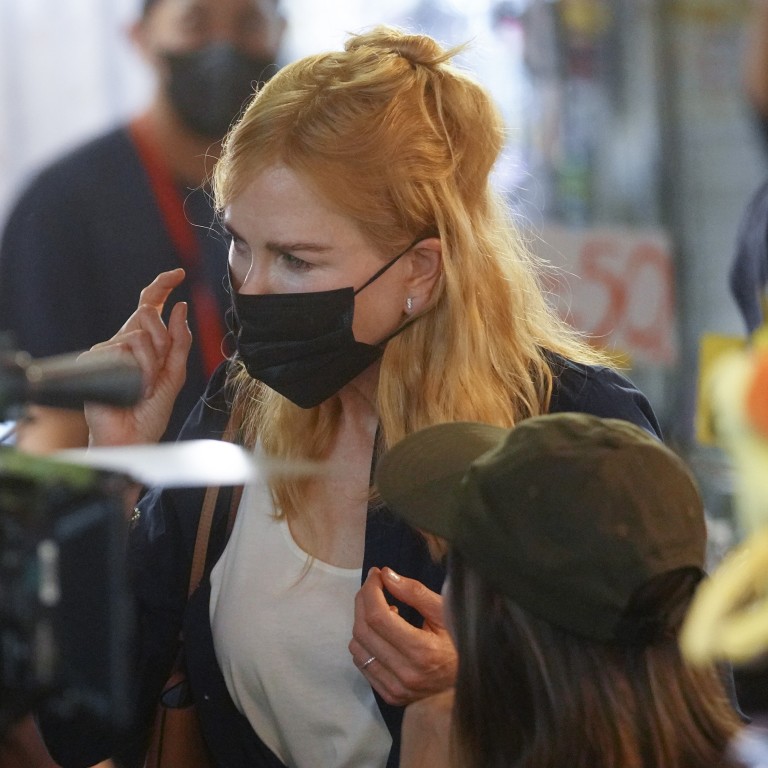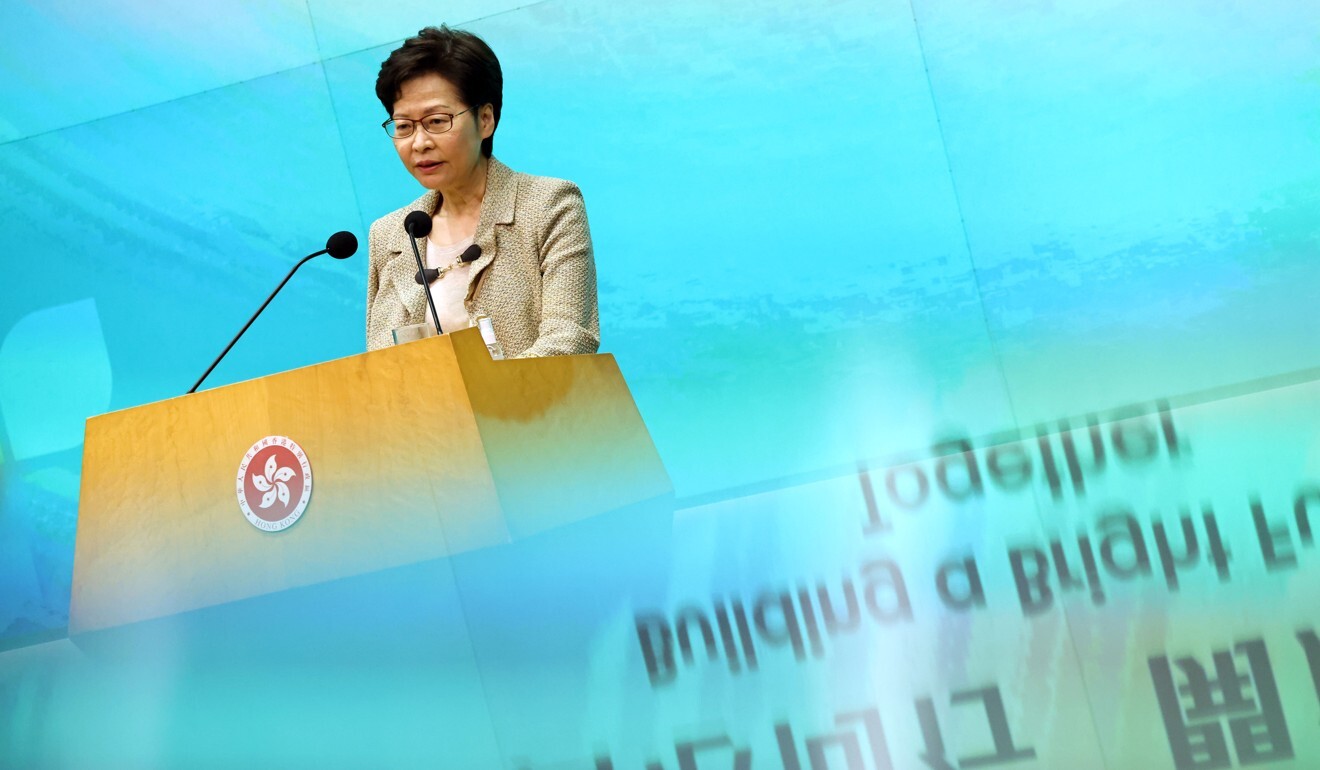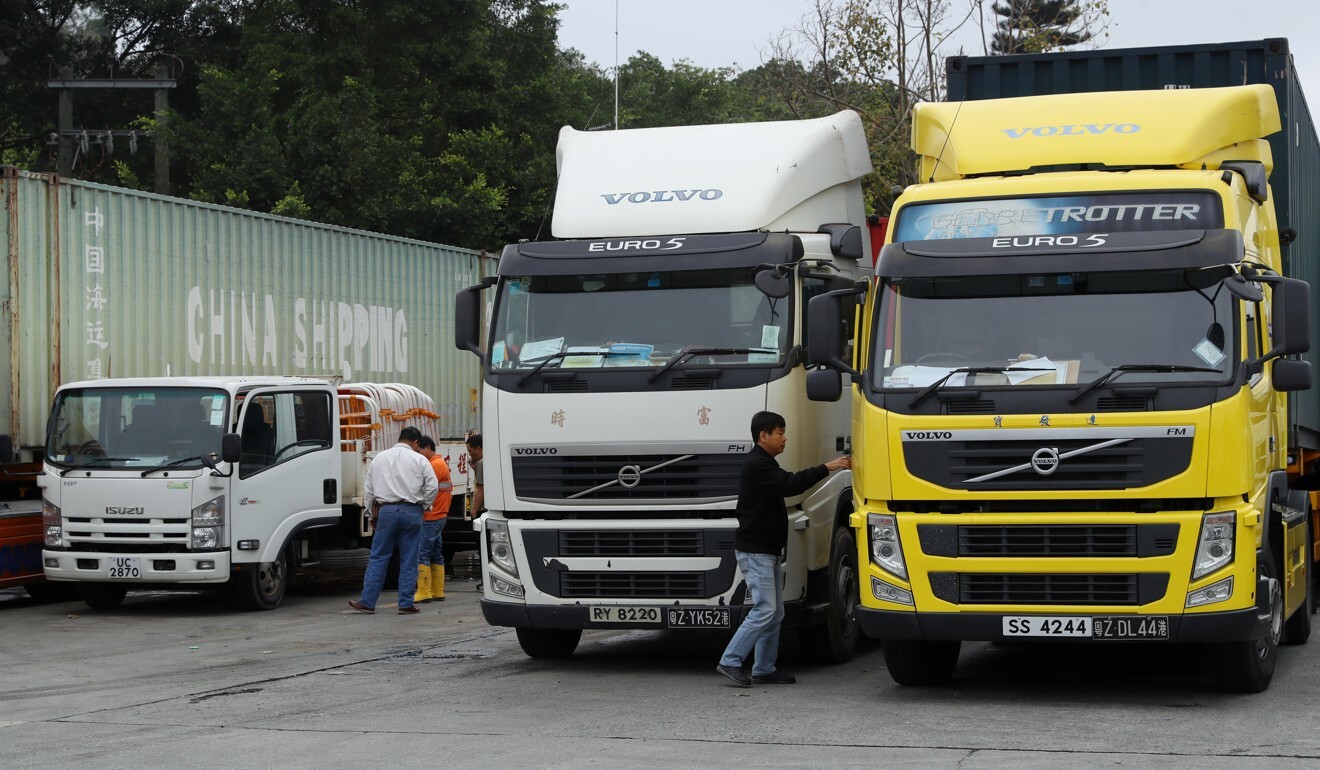
Coronavirus: Hong Kong to axe most quarantine exemptions in bid to satisfy Beijing’s border reopening concerns, tighten hospital discharge rules
- City will require patients meet conditions more in line with mainland China’s approach and spend two weeks in quarantine
- Diplomats, company directors and scientific experts among arrivals who will lose exemption privileges, leader Carrie Lam says
“Controlling the import of possible cases is a very important part of that strategy. If Hong Kong were to loosen the border controls for people arriving from overseas or adopt what other countries have done – so-called living with the Covid-19 virus – then the chances of resuming travel with the mainland will be reduced.”

01:24
Hong Kong leader cancels most quarantine exemptions and tightens hospital discharge rules
In revealing the change in the hospital discharge policy, a government spokesman said the tighter rules were in keeping with the city’s zero-infection policy and would “further reduce the risk of such patients bringing the virus into the community to a minimum. It would also lower the risk of virus spreading in the community due to possible repositive situation.”
There are 50 Covid-19 patients in public hospitals in Hong Kong. Those who meet the new discharge criteria will be transferred directly to the North Lantau Hospital Hong Kong Infection Control Centre to carry out the two-week quarantine and undergo health monitoring.
In order to be released, symptomatic patients must have normal body temperature for more than three days, significant improvement in clinical symptoms and two negative coronavirus tests taken at least 24 hours apart. At least 10 days must have passed since they displayed any symptoms.
Hong Kong hotel staff find Singaporean having seizure during quarantine
Asymptomatic patients must also have two negative Covid-19 tests taken at least 24 hours apart and a minimum of 10 days must have passed since their first positive result.
Under the previous regime, patients were allowed to leave hospital if their viral load was low enough that they were considered unable to transmit the virus, but they were not required to test negative.
The new rules are in line with suggestions published by mainland health authorities.
Health authorities on Tuesday confirmed three coronavirus infections, all imported, involving travellers from Pakistan and Singapore. The city’s overall tally stands at 12,330 cases, with 213 related deaths.
Hong Kong has one of the strictest quarantine policies in the world, but its No 2 official, the chief secretary, has the power to exempt those deemed necessary for governmental, business and health operations.
Under the existing regime, 36 groups that qualify for the quarantine exemption involve travellers from the mainland, while 12 address overseas arrivals, including diplomats, company directors and scientific researchers.
Exempted travellers still need to test negative for Covid-19 before departing for Hong Kong and undergo further screening once in the city.
Hong Kong’s imported Covid-19 cases mostly caught in first 14 days of quarantine
According to the Department of Health, about 47,000 notifications of medical surveillance were issued in each of the last two months, roughly reflecting the traffic of exempted people across the border as they needed to apply for self-surveillance at home upon their return.
Since July last year, 156 air and 152 sea crew members, two of the largest groups given quarantine passes, have been confirmed as carrying Covid-19.
After scrapping the categories, only those people whose work is considered absolutely essential to keeping the city going will be exempted, such as truck drivers, according to Lam.
“Most of the so-called group exemptions, meaning those who are able to come in from overseas and mainland China starting from the start of this year, will be cancelled,” she said. “These are all measures taken to make the central government more confident in allowing us to resume border travel.”

Officials were also accused of applying the rules unfairly when they announced plans in May to exempt four top executives each month from financial firms and listed companies.
As part of the push to reopen the border, Hong Kong health experts met their mainland counterparts on September 26, which resulted in a list of suggestions from the mainland side aimed at bringing the city’s anti-pandemic measures more in line with those of Beijing.
Lam said the cancellation of exemptions was one of the steps outlined in the report that emerged from the talks.
She added that a recent move to require use of the local contact-tracing “Leave Home Safe” app for entry to government buildings was also part of the plan to step up the city’s ability to find close contacts.
But a time frame for reopening the border has remained frustratingly elusive.
“My goal is as soon as possible,” she told reporters. “But even if we could resume border-crossing, it would be in an orderly way, with fewer people [travelling to begin with] and more later on.”
Lam appealed for understanding from the city’s foreign businesses, many of which had publicly called for a loosening of quarantine restrictions, and she noted they also stood to benefit from their workers being able to enter the mainland.
Just a day before, the Asia Securities Industry and Financial Markets Association released the findings of a survey that found almost half of its members, including banks and asset managers, were considering moving staff out of the city due to uncertainties surrounding local travel restrictions.
“Controlling the import of possible cases is a very important part of our strategies,” Lam said. “If Hong Kong were to loosen border controls for people arriving from overseas or adopt what other countries have done [in living] with the Covid-19 virus, then the chances of resuming travel with the mainland will be reduced.”
She also urged the business community to appreciate that they had based themselves in Hong Kong largely due to its proximity to the mainland.
“The context is that Hong Kong’s primary advantage lies in being the gateway to mainland China. If businesses established in Hong Kong cannot go to the mainland, I think it would significantly reduce the appeal of Hong Kong as an international business hub and international financial centre,” she said.

Danny Lau Tat-pong, honorary chairman of the Hong Kong Small and Medium Enterprises Association, said the business sector had no choice but to simply deal with the prolonged border closures until both sides were satisfied with their zero-infection strategies.
“The past 20 months have been difficult for many companies, because businessmen can’t go to mainland China to meet or negotiate with their business partners,” Lau said. “There’s only so much phone calls and video conferencing can do. Businesses with factories across the border can’t just go there and handle any issues that come up.”
Lau predicted that as long as the Hong Kong government maintained the status quo by granting exemptions to cross-border logistics workers, the impact on local supply chains would be minimal.
Additional reporting by Victor Ting, Kathleen Magramo and Elizabeth Cheung


